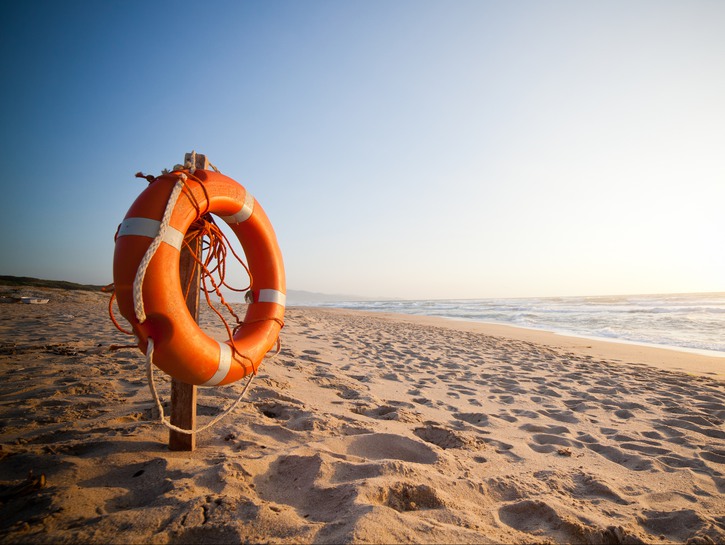
Nobody wants to imagine bad things happening to them when they travel and, thankfully, such worries are typically unfounded. The majority of travelers enjoy their adventures without an accident, mishap, or even a delay. But occasionally bad weather or bad luck can strike, and these are the very circumstances that make travel insurance such a popular option.
Videos by TravelAwaits
I’ve been lucky — very lucky! — that I’ve never needed to make a big insurance claim myself. But a decade of traveling around the world and participating in everything from snorkeling to hot air ballooning to food tours (hey, they can be intense in their own way!) has sharpened my research skills. I wouldn’t think of leaving town without travel insurance, and neither should you. But before you invest in a policy (or skip one altogether), here’s what you should know before you go.
1. Travel Insurance Is A Broad Term
“Travel insurance” is a term that can mean many different things — and not all of them apply to you. It can refer to a policy that covers medical costs when you’re traveling. Or it can apply to a policy that provides compensation when your flight is delayed or your trip is interrupted. It might even include emergency evacuations or reimbursements when you have to buy extra underwear. It could cover all of the above.
The point? You need to be clear about what you want and need and research travel insurance policies accordingly.
2. The Cost Of Emergency Evacuation Is Catastrophic
Maybe you’re a free spirit and researching travel insurance policies is the last thing you want to do. Or perhaps you’re travelling to a destination where even serious medical care is relatively affordable. Perhaps you’ve done your homework and know that the risk of contracting dengue fever or breaking an arm is statistically very low wherever you’re headed — whatever you’re doing.
But there’s one thing for which there’s no workaround: Medical evacuation is catastrophically expensive. I’m talking the kind of expensive that wipes out your entire life savings and forces you to sell your home. I’ve never been so glad to have it as I was one early morning in 2010, when I woke up to air raid sirens in Honolulu. A catastrophic earthquake the previous evening in Chile meant that Oahu was on a tsunami watch. Thankfully, the resulting wave was very minor, but it caused a major scare. If you get just one kind of travel insurance coverage, make it this. It’s affordable and easy. Don’t leave home without it.
3. Alcohol Is Not Your Friend
Many travel insurance policies have exclusions when it comes to alcohol-related mishaps. At first glance, this sounds obvious. If you’re drinking and driving (and thus breaking the law), you can’t expect your travel insurance medical policy to cover your bills.
But alcohol exclusions may go beyond that. Some insurance companies will deny coverage for any mishaps that occur while you’ve been drinking — like breaking your leg on a slippery cobblestone after a night of wine tasting in Tuscany. If you’re planning a wine-centric trip or if relaxing with cocktails is a big part of your vacation plans, this is certainly something to look into.
4. You’ll Still Have To Pay For Little Things
Imagine you’re visiting Livingstone, Zambia, and one day your stomach doesn’t feel so great. Not anything so severe that you need to see a doctor, but uncomfortable enough that you decide to head to a pharmacy to stock up on some essentials. You spend $50 on a variety of imported over-the-counter remedies and it’s well worth it. Your queasy body soon settles down. But that $50? Say goodbye!
I may or may not have been in this exact situation recently and learned that travel insurance doesn’t cover over-the-counter costs. And that’s not all. Most policies have a small deductible; if your medical costs are under the threshold you won’t be reimbursed. Expect to pay for most pharmacy and non-emergency clinic visits on your own.
5. Travel Insurance Can Make Or Break A Cruise
Cruise vacations are supposed to be seamless and worry free…until your flight from Detroit to Miami is waylaid in Washington D.C. thanks to a surprise snowstorm…and your luggage somehow ends up in Cleveland! The boat waits for no one, and that includes you. Travel insurance can help cover your costs as you wait out the storm and make alternative plans to connect with your boat at its next port of call.
It can also help you in the event of a medical or family emergency when you’re sailing. Should catastrophe hit you or your family, your only transportation options will be a chartered flight to a medical facility or home. These are not the kind of costs you want to tackle on your own.
6. You Have To Use Your Credit Card To Qualify For Its Benefits
Does this sound like a familiar story? You sign up for a pricey credit card with a steep annual fee and you justify the costs in part because the card offers excellent trip interruption insurance. You might be paying a few hundred dollars now, but when you’re inevitably stranded at an airport down the road, your cancelled plans and unexpected luggage costs will be covered. It’s well worth it, right?
Alas, that’s not always the case. The insurance is only in effect when you have paid for your flight or resort excursion with that credit card. It sounds obvious when you see it written down, but a lot of people assume insurance is a given, and not conditional upon using it for purchases, as long as they’re paying the credit card’s annual fee. If you’re paying for your trip with a flight voucher or gift certificate — or your employer covered the ticket costs — chances are, you’re without insurance. Read the fine print!
On the flip side, most people forget that their credit card trip interruption insurance can kick in as early as three hours after a flight is delayed. Reading the fine print might just mean you are eligible to have your unexpected meal and contact solution purchased in the terminal reimbursed.
7. Your Electronics Might Not Be Covered
You purchased your flight on a mega sale and you’re staying in inexpensive bed and breakfasts to keep costs low. But that camera around your neck? That’s another story! Perhaps you’re not as budget-friendly as you think. Electronic gear like laptops, cameras, and cell phones are expensive, easily damaged, and irresistibly shiny to magpie-esque thieves.
Unfortunately many travel insurance policies that include lost luggage and personal property damage have a price cap on electronics. If your tech gear is especially valuable, consider a special policy just for electronic goods. The cost is usually very reasonable, as low as $25, to fully protect your high-tech valuables.
8. Legitimate Claims Can Be Denied For Lack Of Documentation
Having your passport stolen is the ultimate travel nightmare. As soon as you realize it’s missing, your heart starts beating faster, your head swirls, and you rush to your hotel manager to ask for advice. Thankfully, they kindly make arrangements for you to go to your embassy and apply for a replacement. But they missed an important step: filing a report with the police station. It’s a time consuming, aggravating brush with bureaucracy, but the accompanying report is crucial for having your costs reimbursed.
Documentation is crucial for every step of the insurance claims process. You’re going to want receipts. Heck, you’re going to want photos of your receipts, too. Get copies of your doctors’ notes, lost luggage claims, unexpected hotel bills — everything.
9. You Can’t Always Cancel
In general, planning a trip is more flexible today than ever before. You can book tours, hotel rooms, and sometimes even flights that have generous cancellation and rebooking policies. But travel insurance is more strict. Most policies have a review period during which you can make changes, but it’s not always possible to cancel in the days leading up to the trip.
If you realize that you’ve purchased a policy that’s not the best fit for you, read through the cancellation policy carefully. Don’t hesitate to give the company a call to ask if they’ll work with you to add on coverage in one area or match a price offered by a competitor.
10. Finally: It’s Much More Affordable Than You Think
If you’re buying insurance for every possible eventuality and convenience, the cost can add up. But a solid policy that protects you from financial disaster and offers you support when you need it most is a good value. And the peace of mind it provides is priceless.
Photo Credit: CoolR / Shutterstock
